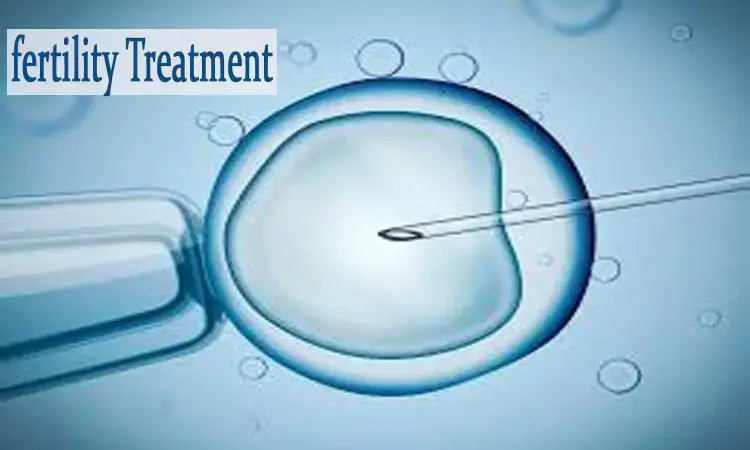- Home
- Medical news & Guidelines
- Anesthesiology
- Cardiology and CTVS
- Critical Care
- Dentistry
- Dermatology
- Diabetes and Endocrinology
- ENT
- Gastroenterology
- Medicine
- Nephrology
- Neurology
- Obstretics-Gynaecology
- Oncology
- Ophthalmology
- Orthopaedics
- Pediatrics-Neonatology
- Psychiatry
- Pulmonology
- Radiology
- Surgery
- Urology
- Laboratory Medicine
- Diet
- Nursing
- Paramedical
- Physiotherapy
- Health news
- Fact Check
- Bone Health Fact Check
- Brain Health Fact Check
- Cancer Related Fact Check
- Child Care Fact Check
- Dental and oral health fact check
- Diabetes and metabolic health fact check
- Diet and Nutrition Fact Check
- Eye and ENT Care Fact Check
- Fitness fact check
- Gut health fact check
- Heart health fact check
- Kidney health fact check
- Medical education fact check
- Men's health fact check
- Respiratory fact check
- Skin and hair care fact check
- Vaccine and Immunization fact check
- Women's health fact check
- AYUSH
- State News
- Andaman and Nicobar Islands
- Andhra Pradesh
- Arunachal Pradesh
- Assam
- Bihar
- Chandigarh
- Chattisgarh
- Dadra and Nagar Haveli
- Daman and Diu
- Delhi
- Goa
- Gujarat
- Haryana
- Himachal Pradesh
- Jammu & Kashmir
- Jharkhand
- Karnataka
- Kerala
- Ladakh
- Lakshadweep
- Madhya Pradesh
- Maharashtra
- Manipur
- Meghalaya
- Mizoram
- Nagaland
- Odisha
- Puducherry
- Punjab
- Rajasthan
- Sikkim
- Tamil Nadu
- Telangana
- Tripura
- Uttar Pradesh
- Uttrakhand
- West Bengal
- Medical Education
- Industry
Experimental treatment offers hope of fertility for early menopausal women

CLEVELAND, Ohio - Menopause typically signals the end of a woman's ability to become pregnant. However, in a small new study, a novel approach of administering platelet-rich plasma and gonadotropins near the ovarian follicles is showing promise in restoring ovarian function. Study results are published online today in Menopause, the journal of The North American Menopause Society (NAMS).
As more women look to build their careers before pursuing motherhood, the average age of conceiving a child continues to be pushed back. For some of these women, however, their hope of becoming pregnant is cut short by the onset of early menopause, which is described as the cessation of ovarian function at or before the age of 45 years. It is estimated that roughly 12.2% of women experience early menopause. For these women, the only chance of becoming pregnant is with donor eggs.
Multiple treatment options have previously been investigated, including standard, controlled ovarian stimulation. Platelet-rich plasma has been used in women with primary ovarian insufficiency, but few pregnancies and live births resulted. With the failure of these somewhat traditional treatments, more novel approaches, such as methods for inducing the growth of ovarian follicles, are being pursued.
In this new, small-scale pilot study, platelet-rich plasma and gonadotropins were injected into the ovaries of study participants, with some fairly amazing results. After treatment, 11 of the 12 study participants resumed menstruation, and one achieved clinical pregnancy, defined as a pregnancy that is confirmed by ultrasound as well as a fetal heartbeat.
Although more research and larger studies are needed, these early results regarding the successful resumption of ovarian function offer hope to women in early menopause who may be able to pursue pregnancy through in vitro fertilization using their own eggs.
Results are published in the article "Resumed ovarian function and pregnancy in early menopausal women by whole dimension subcortical ovarian administration of platelet-rich plasma and gonadotropins."
"This pilot study investigating the use of platelet-rich plasma and gonadotropins injected into the ovaries of women with early menopause highlights the promise of regenerative medicine in restoring or prolonging fertility. Additional studies conducted prospectively and involving large numbers of women are needed to determine whether this is truly a viable option for women with early menopause hoping to achieve pregnancy using their own eggs," says Dr. Stephanie Faubion, NAMS medical director.
Hina Zahid Joined Medical Dialogue in 2017 with a passion to work as a Reporter. She coordinates with various national and international journals and association and covers all the stories related to Medical guidelines, Medical Journals, rare medical surgeries as well as all the updates in the medical field. Email: editorial@medicaldialogues.in. Contact no. 011-43720751
Dr Kamal Kant Kohli-MBBS, DTCD- a chest specialist with more than 30 years of practice and a flair for writing clinical articles, Dr Kamal Kant Kohli joined Medical Dialogues as a Chief Editor of Medical News. Besides writing articles, as an editor, he proofreads and verifies all the medical content published on Medical Dialogues including those coming from journals, studies,medical conferences,guidelines etc. Email: drkohli@medicaldialogues.in. Contact no. 011-43720751


